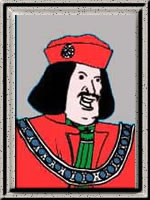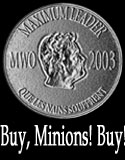Greetings, loyal minions. Your Maximum Leader reports, with a very heavy heart, that George MacDonald Fraser has slipped this mortal coil. Fraser died after a battle with cancer at his home on the Isle of Man on January 2. As many readers will no doubt know, Fraser is the author of the dozen or so novels about the life of Sir Harry Flashman. Those works are among your Maximum Leader’s favorite works of fiction.
The Washington Post has a fine obitiuary for Fraser. Here are the first few paragraphs of that piece:
George MacDonald Fraser, whose tales about an unscrupulous Victorian scoundrel, Sir Harry Flashman, chronicled the misadventures of one of the most memorable characters of modern British fiction, died Jan. 2 of cancer at his home on the Isle of Man in the Irish Sea. He was 82.
After working for years as a journalist, Mr. Fraser published his first novel about Flashman in 1969, passing it off as the newly discovered memoirs of a 19th-century coward, Lothario and soldier of misfortune. Flashman appeared in a dozen novels over the years, inadvertently landing at the center of almost every major military campaign of the Victorian age, from the Boxer Rebellion in China to the Indian Mutiny, the Charge of the Light Brigade, the siege of Khartoum, the Mexican Revolution and the Battle of Little Big Horn.
In Mr. Fraser’s words, Flashman “can only display the courage of a cornered rat” as he tries to escape his many predicaments. Flashman demonstrates little more than craven self-interest, yet he invariably emerges as the antihero of his comic escapades, undeservedly winning top medals for bravery and bedding countless women along the way.
When the first novel in the series appeared, “Flashman: From the Flashman Papers, 1839-1842,” Mr. Fraser claimed to have edited manuscripts he had found at a household sale.
Several critics were initially taken in by the ruse and believed that the stories were drawn from a lost cache of authentic memoirs. But the character of Harry Paget Flashman originally appeared as a bully in “Tom Brown’s Schooldays,” a popular Victorian boys’ book that Mr. Fraser read as a child. The story flagged whenever Flashman left the stage, Mr. Fraser noted, so he made the irrepressible rogue the central figure of his novels.
“Anything is thinkable if it preserves [Flashman] with a whole skin,” critic Christopher Hitchens wrote in The Washington Post in 1986. “The very qualities which got him expelled from Tom Brown’s Rugby School — deceit, cruelty and funk — fit him admirably as a man to take credit for the sacrifices of others.”
The Times of London has, as they almost always do, a better obituary. From the Times:
[Fraser] had hit on a deceptively simple idea that proved to be a bestselling formula at the end of the Swinging Sixties. The public still wanted to sit down with a good rip-roaring yarn ûôÂûÂãô˜ûÂã˜ô but did not want heroes. So why not make the central character a cad? A cad the reading public already knew about ûôÂûÂãô˜ûÂã˜ô Harry Flashman, the bounder of Tom BrownûôÂûÂãô˜ûÂãôÂs Schooldays?What happened to Flashman after the good Doctor Arnold expelled him from Rugby? Fraser decided that he must have gone into the Army. Bully, liar and coward he may still have been, but the Victorian military authorities did not mind. Or perhaps they were simply too stupid to notice, as he whored and cheated his way around the British Empire. The resulting stories became one of the great tongue-in-cheek achievements of popular fiction.
The standing joke between Fraser and his readers was that these were genuine memoirs: they had been discovered, ûôÂûÂãô˜û ãwrapped in oilskinûôÂûÂãô˜ûô and stuffed into a tea chest, during a house sale at Ashby, Leicestershire, in 1965. They described how, after a long, eventful life, loved by the ladies and lauded by the Establishment ûôÂûÂãô˜ûÂã˜ô Flashman was a brigadier-general, a VC, a Knight of the Bath, a Chevalier of the Legion dûôÂûÂãô˜ûÂãôÂHonneur and, amusingly, holder of the San Serafino Order of Purity and Truth ûôÂûÂãô˜ûÂã˜ô the old scoundrel mused in old age about how he had got away with it: ûôÂûÂãô˜û ãThe ideal time to be a hero,ûôÂûÂãô˜ûô he wrote, ûôÂûÂãô˜û ãis when the battle is over and the other fellows are dead, God rest ûôÂûÂãô˜ûÂãôÂem, and you take the credit.ûôÂûÂãô˜ûô
It was all rollicking nonsense; but it had a sterling quality that went to the heart of many sophisticated readers who like to relax with a rubbishy book provided it is well written rubbish. Fraser was a thoroughly professional literary craftsman.
The books could be enjoyed at different levels. They sold in airport bookshops and they found their way into the hands of solemn Americans who could not understand why they were unable to find General Flashman in the reference books. Letters came from people who claimed to be related to Flashman as a result of one of his irregular liaisons. One serving British officer claimed that his grandfather lent Flashman $50 and a horse during the American Civil War ûôÂûÂãô˜ûÂã˜ô and never saw either again.
Your Maximum Leader has not yet read two Flashman books that he owns (thanks to Christmas) - Flashman on the March (the most recent) and Flashman and the Angel of the Lord. He will now move both of these books up in his queue.
Carry on.


